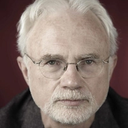

John Adams
- Biography
Composer, conductor, and creative thinker – John Adams occupies a unique position in the world of American music. His works, both operatic and symphonic, stand out among contemporary classical compositions for their depth of expression, brilliance of sound, and the profoundly humanist nature of their themes. Over the past 30 years, Adams’s music has played a decisive role in turning the tide of contemporary musical aesthetics away from academic modernism and toward a more expansive, expressive language, entirely characteristic of his New World surroundings.
Adams is the 2019 recipient of the Erasmus Prize “for notable contributions to European culture, society and social science,” one of only three composers and, of those, the only American to be so honored in the prize’s 61-year history.
Born and raised in New England, Adams learned the clarinet from his father and played in marching bands and community orchestras during his formative years. He began composing at age ten and heard his first orchestral pieces performed while still a teenager. The intellectual and artistic traditions of New England, including his studies at Harvard University and attendance at Boston Symphony Orchestra concerts, helped shape him as an artist and thinker. After earning two degrees from Harvard, he moved to Northern California in 1971 and has since lived in the San Francisco Bay area.
Adams taught at the San Francisco Conservatory of Music for ten years before becoming composer-in-residence of the San Francisco Symphony (1982-85), and creator of the orchestra’s highly successful and controversial “New and Unusual Music” series. Many of Adams’s landmark orchestral works were written for and premiered by the San Francisco Symphony, including Harmonium (1981), Grand Pianola Music (1982), Harmonielehre (1985), My Father Knew Charles Ives (2003) and Absolute Jest (2012).
In 1985, Adams began a collaboration with stage director Peter Sellars that has resulted in three decades of groundbreaking operas and oratorios: Nixon in China (1987), The Death of Klinghoffer (1991), both to libretti by Alice Goodman, El Niño (2000), Doctor Atomic (2005), A Flowering Tree (2006), The Gospel According to the Other Mary (2012) and Girls of the Golden West (2017). Of his first opera, The New Yorker Magazine said, “Not since Porgy and Bess has an American opera won such universal acclaim as Nixon in China.”
He has received numerous Grammy awards, many of them for his over thirty releases on Nonesuch Records. In 2017 the Berliner Philharmoniker released The John Adams Edition, a multi-CD and DVD compilation of his music in performances conducted by Rattle, Dudamel, Petrenko, Gilbert and Adams himself.
A new recording of the complete opera Doctor Atomic, with Adams conducting the BBC Symphony and featuring baritone Gerald Finley and soprano Julia Bullock was released in July, timed to the new Sellars production at the Santa Fe Opera.
Must the Devil Have All the Good Tunes? a new concerto for pianist Yuja Wang, will be premiered in March of 2019 with the Los Angeles Philharmonic under Gustavo Dudamel.
Both Harvard and Yale universities have conferred honorary doctorates on Adams, as have Northwestern University, the Juilliard School and Cambridge University in England. Governor Arnold Schwarzenegger of California honored him with the Governor’s Award for his distinguished service to the arts in his adopted home state. His Violin Concerto won the 1993 Grawemeyer Award, and On the Transmigration of Souls, commissioned by the New York Philharmonic to commemorate the first anniversary of 9/11, received the 2003 Pulitzer Prize in Music.
Adams’ work for two-pianos, Hallelujah Junction, serves at the opening music in Lucca Guadagnino’s Academy Award-nominated film “Call Me By Your Name.”
John Adams is a much sought-after conductor, appearing with the world’s major orchestras, including the London Symphony Orchestra, the Concertgebouw Orchestra, the Berliner Philharmoniker, the Cleveland Orchestra and the Metroplitan Opera. His programming combines his own works with a wide variety of repertoire ranging from Beethoven, Mozart and Wagner to Ives, Stravinsky, Carter, Zappa, and Ellington.
The 2019-20 season included conducting appearances with the New York Philharmonic, Philadelphia Orchestra, St Louis Symphony, Seattle Symphony, Netherlands Radio Philharmonic, Los Angeles Philharmonic and the Orchestra of Radio France.
Since 2009 Adams has held the position of Creative Chair with the Los Angeles Philharmonic where he has been instrumental in the success of that orchestra’s highly creative Green Umbrella new music series. With the Los Angeles Philharmonic he conducted the world premiere of Philip Glass’s Symphony No, 12 with singer Angelique Kidjo in January of 2019.
Through his conducting and commissioning of new works, Adams has become a significant mentor of the younger generation of American composers. The Pacific Harmony Foundation, created with his wife, the photographer Deborah O’Grady, supports commissions and performances of new works and musical education initiatives throughout the country. Adams’ educational activities reach from the local (the John Adams Young Composers program in his hometown of Berkeley, California) to the national and international (the Juilliard School, the Royal Academy of Music, the New World Symphony and the Berliner Phiharmoniker Akadamie).
John Adams is also a highly esteemed and provocative writer. He is a frequent contributor to the New York Times Book Review and has written for The New Yorker and The London Times. Hallelujah Junction, Adams’s much praised volume of memoirs and commentary on American musical life, won the Northern California Book Award for Creative Nonfiction and was named one of the “most notable books of the year” by The New York Times. The official John Adams website is www.earbox.com.